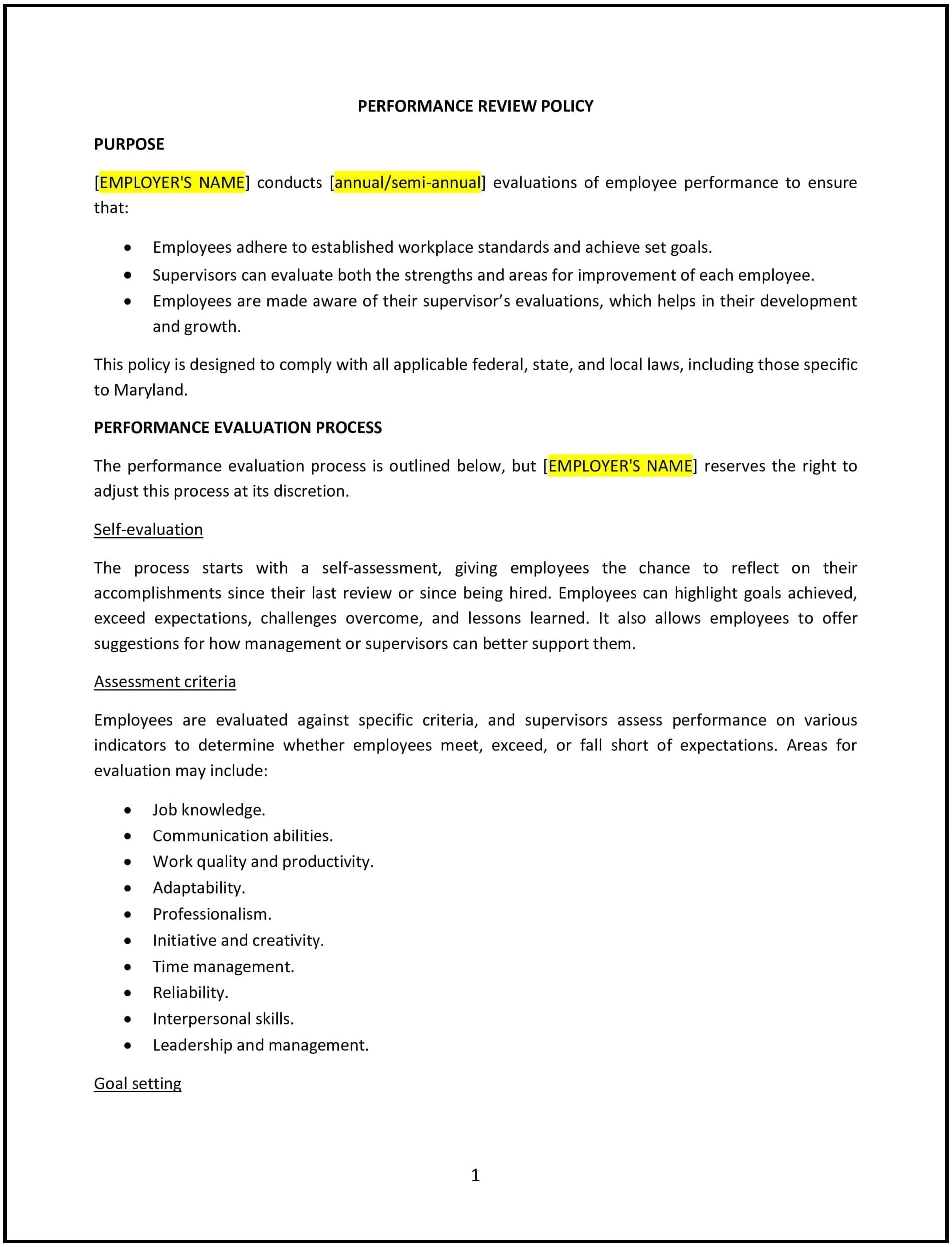Performance review policy (Maryland): Free template
Got contracts to review? While you're here for policies, let Cobrief make contract review effortless—start your free review now.

Customize this template for free
Performance review policy (Maryland)
This performance review policy is designed to help Maryland businesses establish a structured framework for evaluating employee performance. It outlines the purpose, frequency, and process of performance evaluations to ensure transparency, consistency, and alignment with organizational goals.
By adopting this policy, Maryland businesses can enhance employee engagement, identify growth opportunities, and support organizational success.
How to use this performance review policy (Maryland)
- Define review objectives: Specify the purpose of performance reviews, such as providing feedback, setting goals, and identifying development opportunities.
- Establish review frequency: Indicate how often reviews will take place (e.g., annually, biannually, or quarterly).
- Outline evaluation criteria: Detail the metrics used to assess performance, such as goal achievement, skills, and workplace behavior.
- Include preparation guidelines: Provide instructions for both employees and managers to prepare for the review process, such as gathering documentation or completing self-assessments.
- Address feedback delivery: Emphasize constructive and balanced feedback, focusing on strengths and areas for improvement.
- Set follow-up actions: Require documented follow-ups, such as performance improvement plans (PIPs) or training programs, where needed.
- Reflect Maryland-specific considerations: Incorporate state labor laws or workplace practices relevant to employee evaluations, if applicable.
Benefits of using this performance review policy (Maryland)
Implementing this policy provides Maryland businesses with several advantages:
- Promotes transparency: Ensures employees understand how their performance is evaluated and what is expected of them.
- Supports development: Identifies areas for growth and provides opportunities for skill enhancement.
- Aligns goals: Helps align individual performance with broader organizational objectives.
- Encourages accountability: Reinforces employee responsibility for meeting performance expectations.
- Enhances employee engagement: Demonstrates a commitment to employee growth and success.
Tips for using this performance review policy (Maryland)
- Train managers: Equip supervisors with the skills to conduct fair and effective performance evaluations.
- Document reviews: Maintain records of all performance reviews for reference and accountability.
- Use consistent criteria: Ensure all employees are evaluated using the same standards to promote fairness.
- Provide regular feedback: Supplement formal reviews with ongoing feedback to address performance concerns in real time.
- Review regularly: Update the policy to reflect changes in Maryland labor laws or organizational needs.